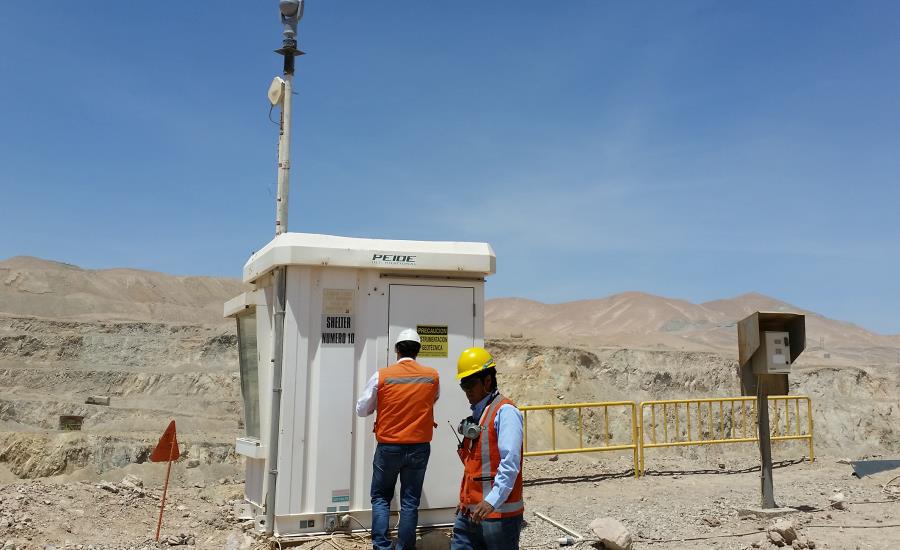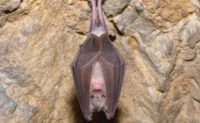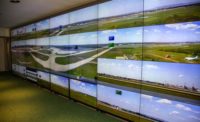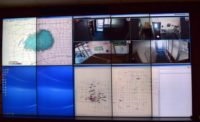It is a windy business up there, 3,000 meters above sea level, in the Atacama Desert in the Andes in Chile. Digging for copper in the Radomiro Tomic mine of the state-owned mining company Coldeco is rough, rugged, and dangerous. Nearly every week, strong gusts of wind force 24/7 operations to a halt for an hour or two. Every day, clouds of dust or rock avalanches endanger the drivers of the giant trucks and excavators hauling thousands of tons of rocks out of the 3,500 meters long, 1,500 meters wide and 470 meters deep open pit mine. It is all worth it, for a daily copper yield of 800 tons.
How does Coldeco maintain the highest security in this harsh environment, and still keep its capital-intense operation running at maximum productivity, to compete in the global commodities market? A team of 300 geotechnical experts monitors the operations day and night in a nearby center, and makes decisions to safeguard personnel, machinery, and roads, while interrupting the mining as little as possible. Eleven Bosch cameras give the geotechnical team the observational insights they need to assure the smooth and safe operations of the mine. In every type of weather and lighting condition, even pitch-black night, the cameras installed on cabins around the open pit transmit data and video images to the monitoring center.
Six Bosch MIC 412 and MIC 612 thermal cameras provide standard pictures as well as thermal pictures. The thermal cameras allow the experts to visualize the internal geological conditions, like different temperatures. The temperature of the rock walls, for example, provides information on the strength of the rocks, and enables the expert team to identify in advance the rock faces which are in danger of collapsing.
Another four Bosch MIC 550 cameras, and one MIC IP starlight 7000 HD camera with infrared illumination, provide further video imagery around the clock, even in complete darkness.
Engineered to work in extreme conditions, the solid metal bodies withstand high-impact (up to IK10 rating) or continuous low-frequency vibration (IEC 60068 rating). The MIC cameras withstand temperatures from -40 degree Celsius to +60 degree Celsius, severe winds and 100 percent humidity, and are rated to IP68.
The thermal, infrared, and starlight cameras are all part of the Bosch complete reporting system. This system forms the basis for managing the entire mine. From capturing images from the open pit, to transmitting the videos wirelessly via radio networks to the monitoring center, it enables the geotechnical experts to constantly view and monitor the operations in the pit, analyze the geological condition of the rocks, and take preventive security measures if necessary. The system also records the videos (via a Bosch DIVAR IP 7000 recording unit), allowing the monitoring center personnel to run research queries for historical data analysis and an improved understanding of mine conditions.
It is a windy business up there, 3,000 meters above sea level, in the Atacama Desert in the Andes in Chile. Digging for copper in the Radomiro Tomic mine of the state-owned mining company Coldeco is rough, rugged, and dangerous. Nearly every week, strong gusts of wind force 24/7 operations to a halt for an hour or two. Every day, clouds of dust or rock avalanches endanger the drivers of the giant trucks and excavators hauling thousands of tons of rocks out of the 3,500 meters long, 1,500 meters wide and 470 meters deep open pit mine. It is all worth it, for a daily copper yield of 800 tons.
How does Coldeco maintain the highest security in this harsh environment, and still keep its capital-intense operation running at maximum productivity, to compete in the global commodities market? A team of 300 geotechnical experts monitors the operations day and night in a nearby center, and makes decisions to safeguard personnel, machinery, and roads, while interrupting the mining as little as possible. Eleven Bosch cameras give the geotechnical team the observational insights they need to assure the smooth and safe operations of the mine. In every type of weather and lighting condition, even pitch-black night, the cameras installed on cabins around the open pit transmit data and video images to the monitoring center.
Six Bosch MIC 412 and MIC 612 thermal cameras provide standard pictures as well as thermal pictures. The thermal cameras allow the experts to visualize the internal geological conditions, like different temperatures. The temperature of the rock walls, for example, provides information on the strength of the rocks, and enables the expert team to identify in advance the rock faces which are in danger of collapsing.
Another four Bosch MIC 550 cameras, and one MIC IP starlight 7000 HD camera with infrared illumination, provide further video imagery around the clock, even in complete darkness.
Engineered to work in extreme conditions, the solid metal bodies withstand high-impact (up to IK10 rating) or continuous low-frequency vibration (IEC 60068 rating). The MIC cameras withstand temperatures from -40 degree Celsius to +60 degree Celsius, severe winds and 100 percent humidity, and are rated to IP68.
The thermal, infrared, and starlight cameras are all part of the Bosch complete reporting system. This system forms the basis for managing the entire mine. From capturing images from the open pit, to transmitting the videos wirelessly via radio networks to the monitoring center, it enables the geotechnical experts to constantly view and monitor the operations in the pit, analyze the geological condition of the rocks, and take preventive security measures if necessary. The system also records the videos (via a Bosch DIVAR IP 7000 recording unit), allowing the monitoring center personnel to run research queries for historical data analysis and an improved understanding of mine conditions.






